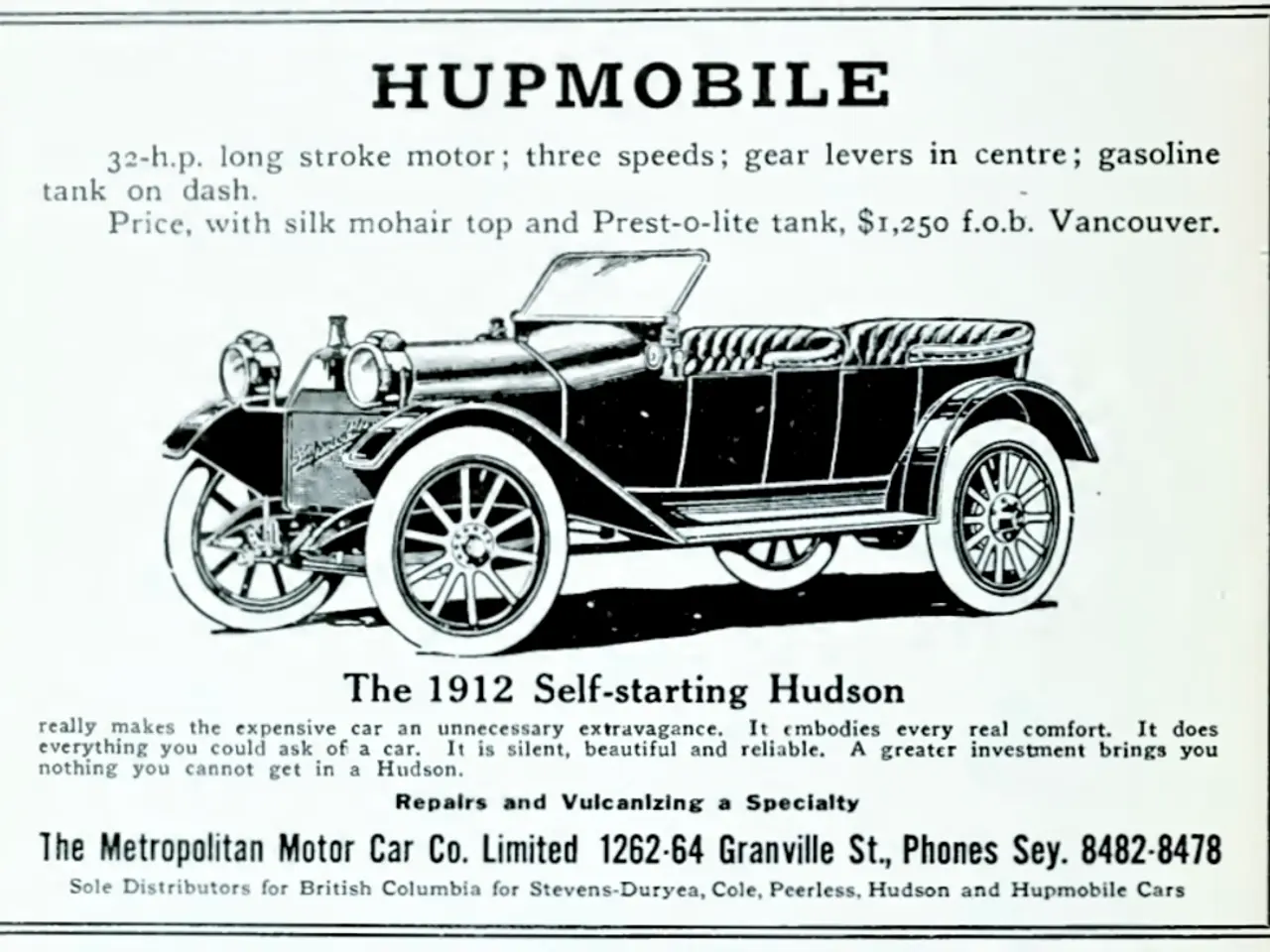America-based manufacturing titan hints at substantial financial commitment reinvigorating domestic economic growth
Title: Whirlpool CEO Skeptical About Trump's Steel Tariffs: A Questionable Boost for Steelmakers and Manufacturing Sector
Marc Bitzer, the CEO of appliance giant Whirlpool, takes a swipe at President Donald Trump's steel tariffs on "Mornings with Maria." Bitzer accuses the tariffs of creating financial burdens for manufacturers and hindering America's economy.
The firebrand CEO divulges Whirlpool's aggressive investment strategy in the domestic economy. "This year, we went big," he declares on the show, signaling a steadfast commitment to the Trump administration's policies. "With tariffs now in place and our faith in the administration, we will invest more in the U.S." he adds, affirming additional investments in marketing and U.S factories.
Whirlpool, a Michigan-based company, unveiled plans earlier this year to launch new products spanning 30% of its inventory range, emphasizing refreshed sourcing and final production, Bitzer explains.
*AMERICA'S MANUFACTURING JOBS UNDER THREAT FROM TRUMP'S STEEL TARIFFS*
Bitzer claims manufacturers now have the choice to produce products domestically or abroad, confirming that Whirlpool opts for US-based production. "This is not new products, but capital investment products. But we will also invest more in the automation and the update of our factories," he mentions, emphasizing the benefits of "vertical integration."
Despite Whirlpool missing its Q1 projections, Bitzer expresses confidence in the company's ability to boost production volumes, especially in the upcoming Q3 and Q4. This, he trusts, can help bridge the 60% factory utilization gap and firm up manufacturer profits.
Research suggests that the steel tariffs have resulted in the loss of more manufacturing jobs (approximately 75,000) than claimed gains (around 1,000 jobs) in the steel sector. As a major steel-reliant manufacturer, Whirlpool faces the brunt of these increased costs.
"Steel tariffs have enriched steel companies while burdening downstream manufacturers like Whirlpool," Bitzer explains. "I need strong U.S.-based steel production, but I lament the broad impact these tariffs have had on America's manufacturing ecosystem."
video## Trump Fails to Revive American Manufacturing with Tariffs
Experts discuss the weak outcomes of Trump's tariff policies on American manufacturing sectors in a "The Big Money Show" panel.
As a net loser in the current market conditions, Whirlpool today sources 96% of its required steel domestically. Critics hope that by curbing imports, steel tariffs would ultimately revitalize American manufacturing. Yet, Whirlpool's experience suggests otherwise.
"Increased input costs and harmful retaliatory tariffs have limited our ability to compete effectively on the global stage," Bitzer concludes, voicing concern over Trump's overall industrial policy. "While increased steel production in the short-term benefits steelmakers, in the long-run, a protectionist approach undermines American manufacturing's global competitiveness and stifles job growth. Steel tariffs provoke more questions than answers."
Sources:
- Warsaw, A., Andersen, E., Oliver, I., & Utsick, A. (2021). "Heavier burden." McKinsey and Company. https://www.mckinsey.com/business-functions/strategy-and-corporate-finance/our-insights/heavier-burden
- Kelley, J. (2019). "Trump's Steel and Aluminum Tariffs Miss the Target." Council on Foreign Relations. https://www.cfr.org/blog/trumps-steel-and-aluminum-tariffs-miss-target
- Mueller, R. (2019). "The Impact of U.S. Steel and Aluminum Tariffs: Combining Insights from Economic Modeling and Qualitative Analysis." Federal Reserve Bank of Dallas. https://www.dallasfed.org/research/economics/2019/wp1911_taylor.pdf
- Despite the tariffs enriching the steel companies, Whirlpool's CEO Bitzer expresses concern that these tariffs are burdensome for downstream manufacturers like Whirlpool, questioning Trump's overall industrial policy.
- Whirlpool, a major steel-reliant manufacturer, faces increased costs due to the steel tariffs, with these tariffs leading to the loss of more manufacturing jobs (approximately 75,000) than claimed gains (around 1,000 jobs) in the steel sector.
- Amidst the current market conditions, Whirlpool today sources 96% of its required steel domestically, hoping that by curbing imports, steel tariffs would revitalize American manufacturing. However, the company's experience suggests otherwise, as increased input costs and retaliatory tariffs limit their ability to compete effectively on the global stage.







